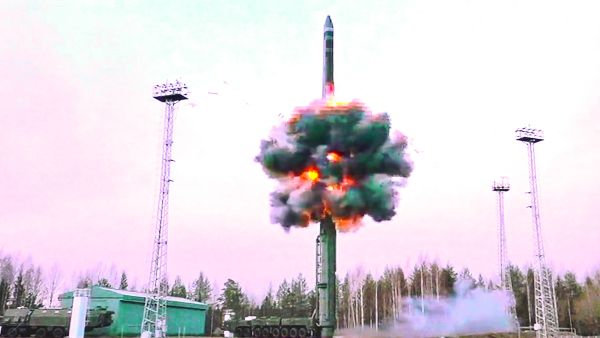ALBAWABA - There is a lot of discussion in European defense circles about a plan for the UK and Germany to create a joint nuclear deterrence framework. This idea has brought to light deep political and strategic differences between the two countries.
The Telegraph says that a number of high-ranking British defense officials have asked Prime Minister Keir Starmer to start official talks with Berlin about a new nuclear-sharing deal to deal with what they call the "critical threat" from Russia. But there are doubts about how practical this kind of cooperation would be and who would have the final say over nuclear weapons in a crisis.
Political Doubt and Strategic Talks
Military planners are starting to think more about British-German nuclear cooperation, but the German government has mostly talked about security with France so far, looking into how Paris might protect its European allies with nuclear weapons. German Chancellor Friedrich Merz has said he is open to talking about a similar deal with London, but both governments say that formal talks have not taken place.
Lord Robertson, who used to be NATO Secretary General, liked the idea and said it was "a necessary and overdue step toward a united European deterrent." He said that Moscow's increasingly aggressive nuclear language was making Europe get ready for a time when it might have to defend itself without full U.S. support.
Robertson warned that "there are growing fears that Washington could one day cut back on its commitment to European defense." He called for more cooperation between countries on the continent.
Adding to the British Arsenal
The UK still has its nuclear deterrent in the form of Trident missiles that are carried on its Vanguard-class submarines. One submarine is always on patrol to make sure they are ready. An agreement from the 1960s says that these weapons are part of NATO's collective defense strategy.
Earlier this year, Prime Minister Starmer said that Britain would buy 12 F-35A stealth planes that could carry nuclear weapons. This is part of a larger effort to improve Britain's ability to defend itself.
Lord Houghton, a former Chief of the Defence Staff, said that talks about Europe's nuclear future should start up again. He said that the U.S. should "reignite serious debate over a continental deterrence framework" because of the growing uncertainty about its priorities, especially as it moves its focus to Asia.
Concerns About Shared Control
There is disagreement. Retired General Richard Barrons said that the idea of nuclear sharing was unrealistic because it would fall apart because of too much red tape and different national interests.
"Imagine trying to get 30 allied nations to agree on a response before you do it, while Russia only has to answer to one person," Barrons said. "That imbalance makes it almost impossible to share nuclear control."
Cooperation in a symbolic way, but no sharing of nuclear weapons yet
The report said that Britain and Germany recently celebrated the first anniversary of the Trinity House Agreement, which is a defense partnership that lets German P-8 maritime patrol planes fly from RAF Lossiemouth in Scotland to find Russian submarines in the North Atlantic. The agreement also calls for working together on long-range strike systems and cyber security.










